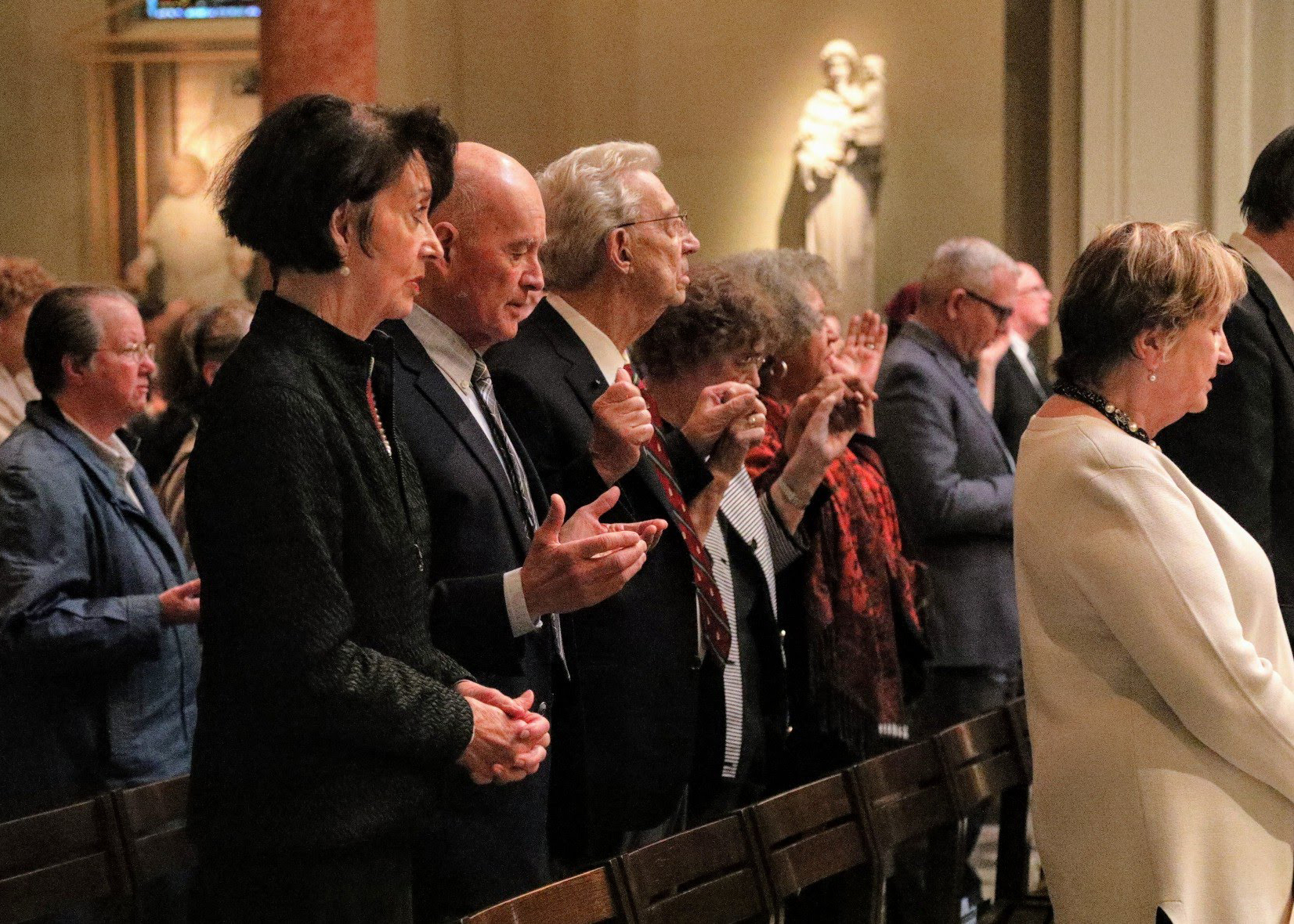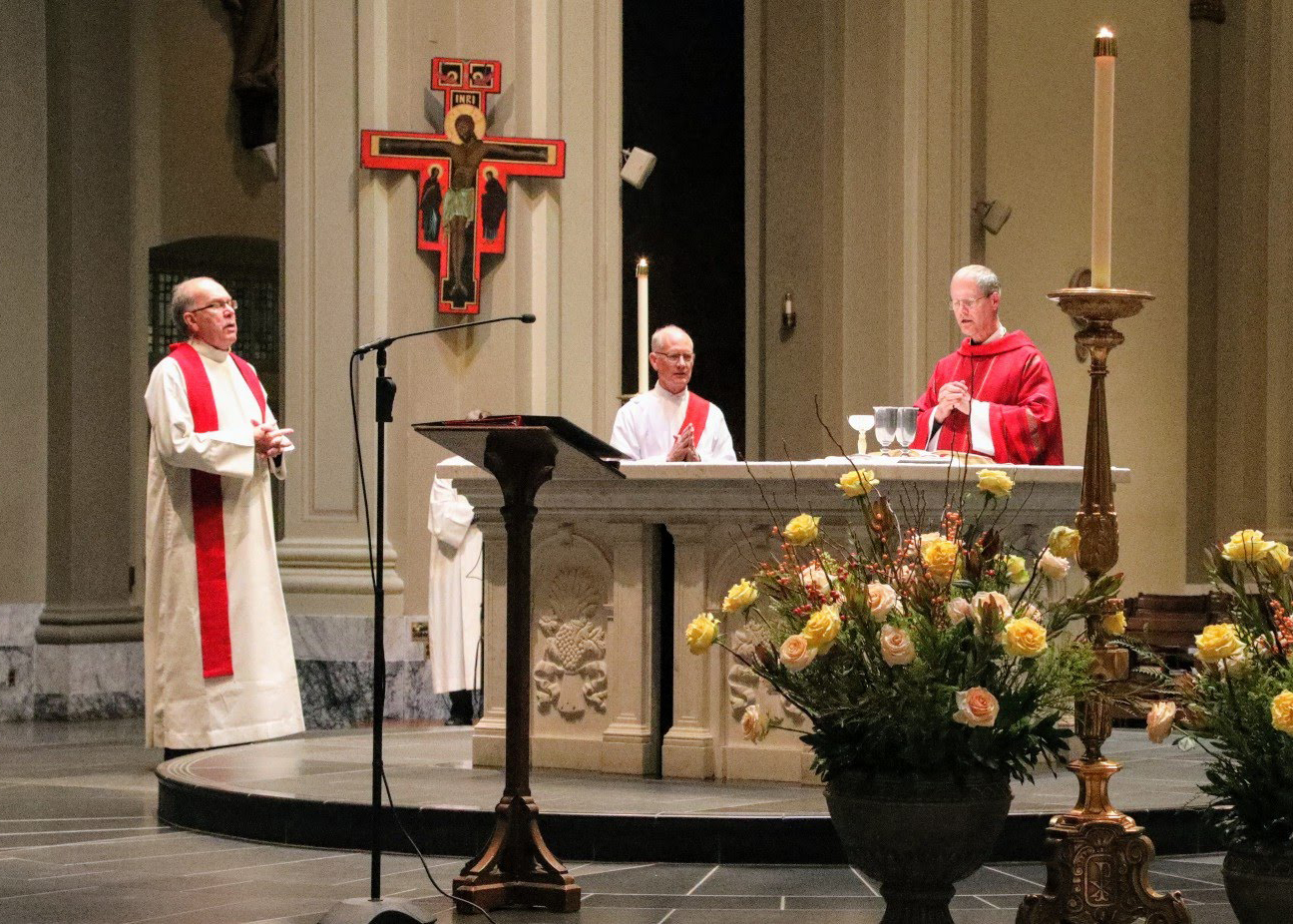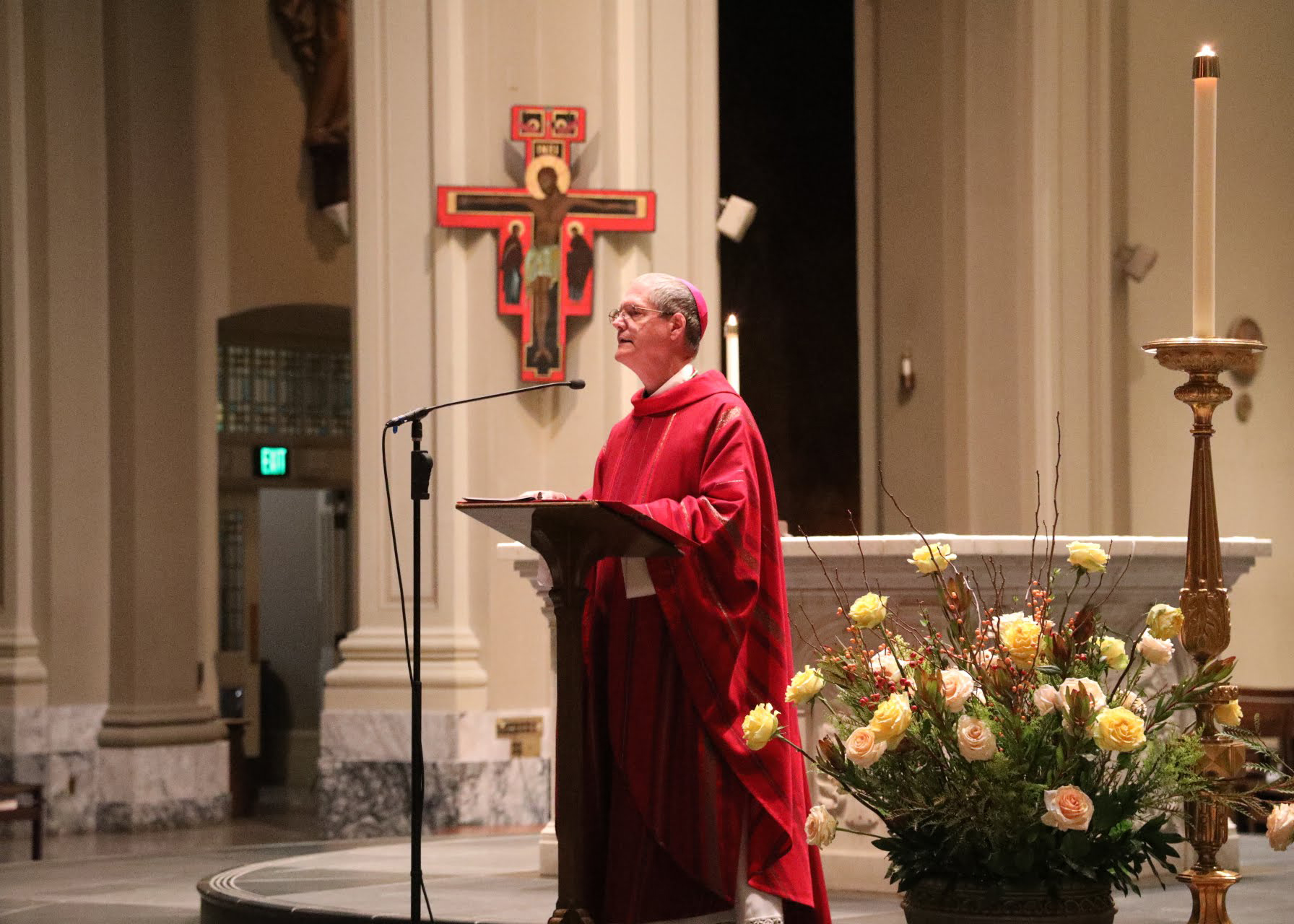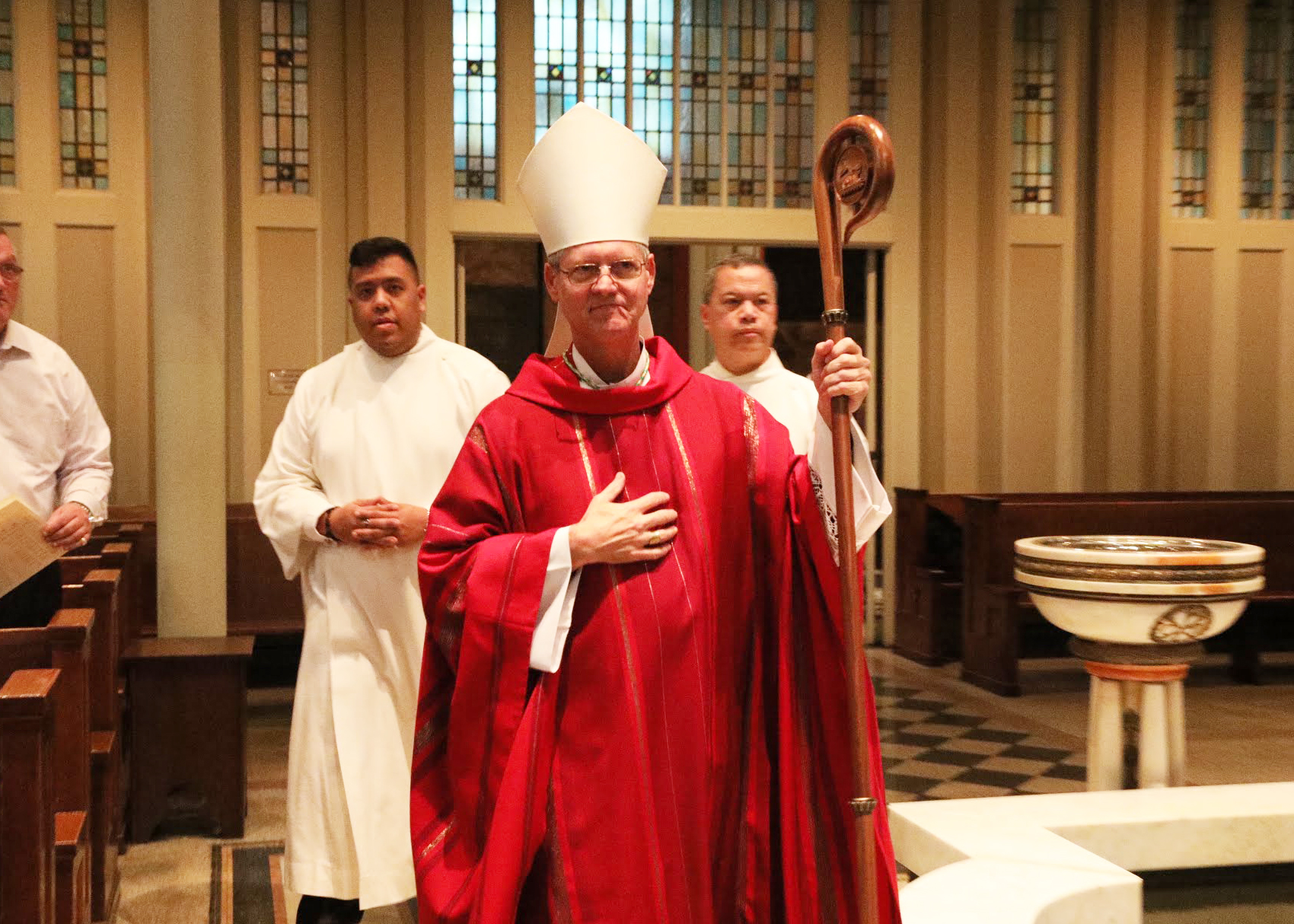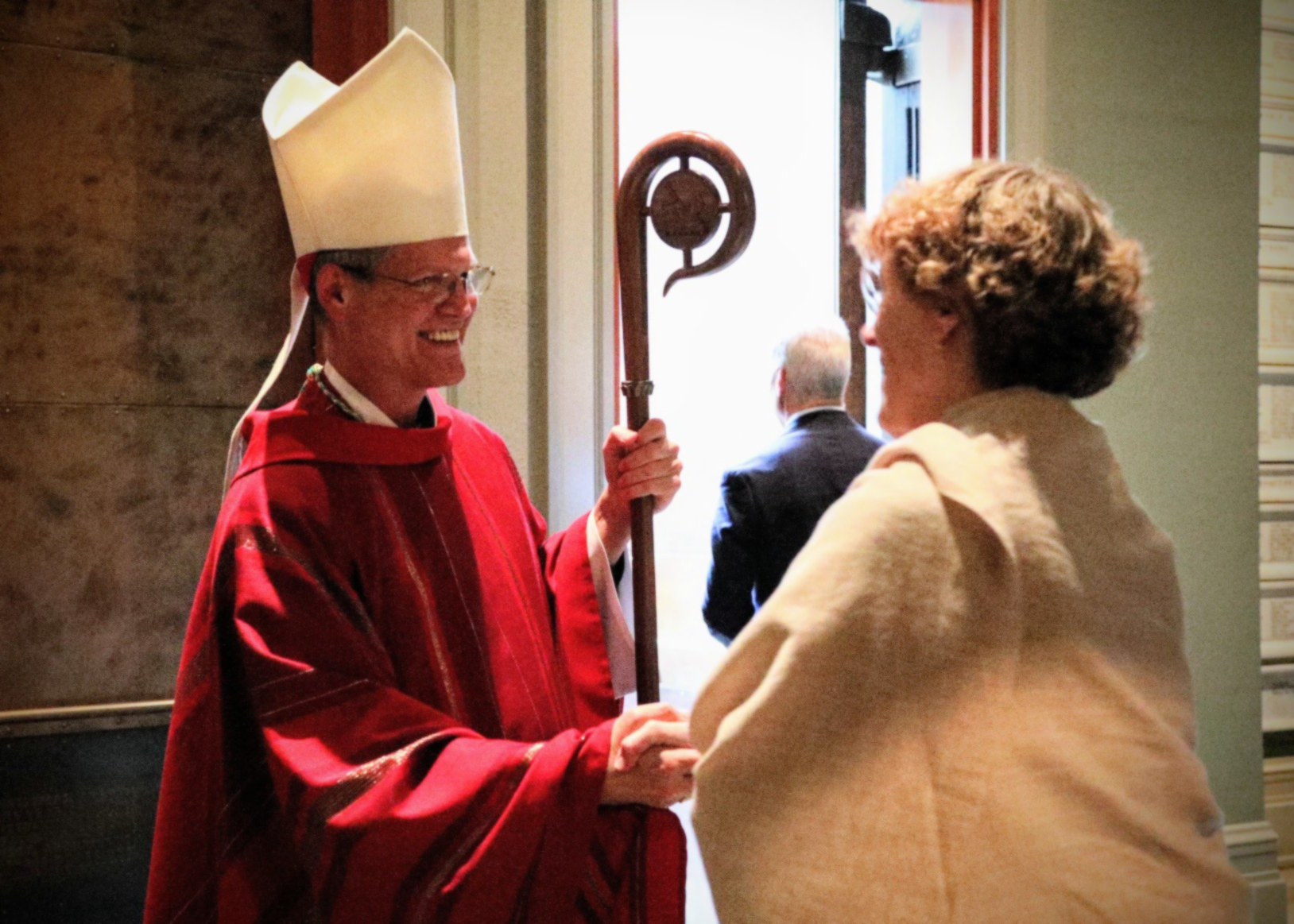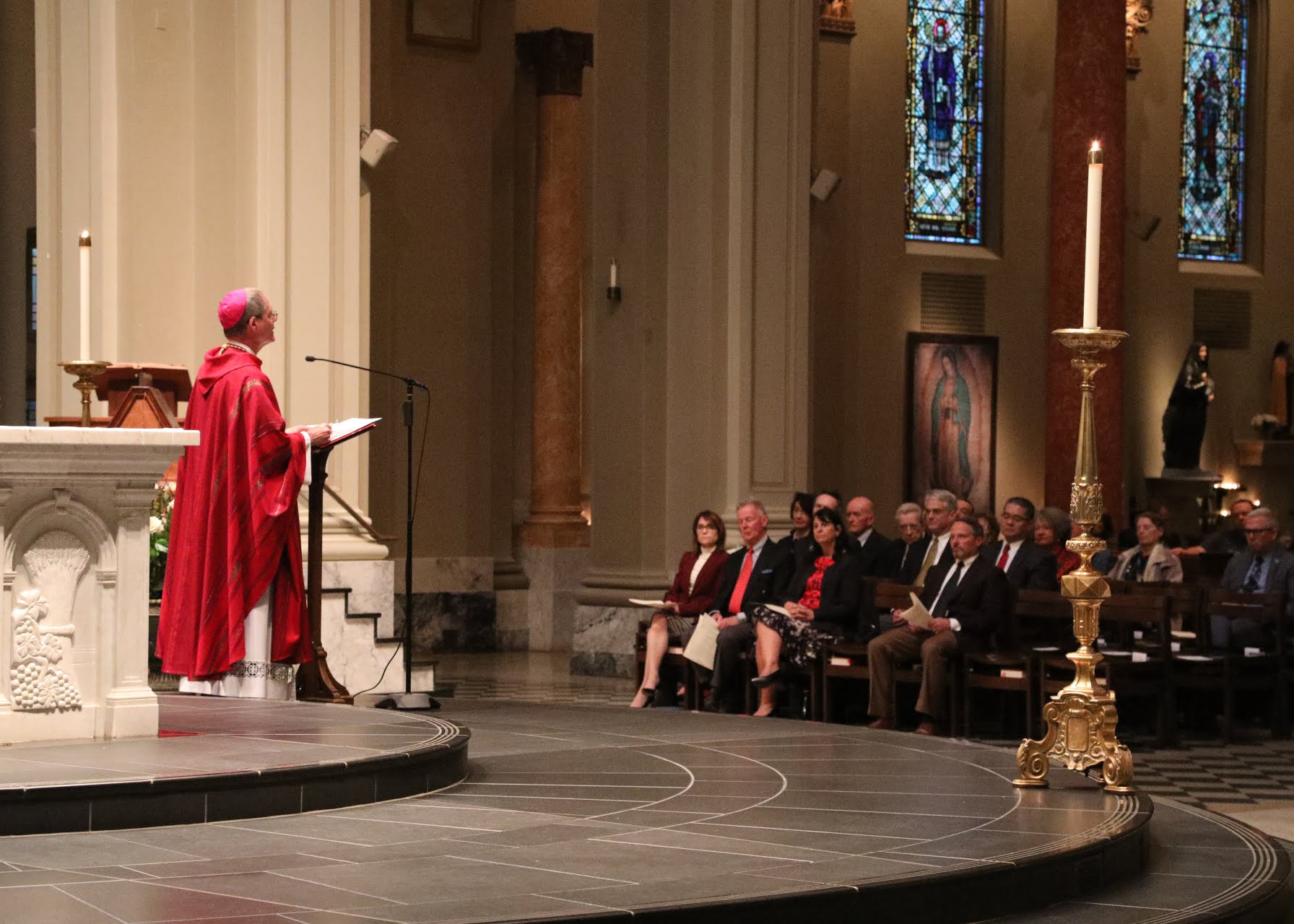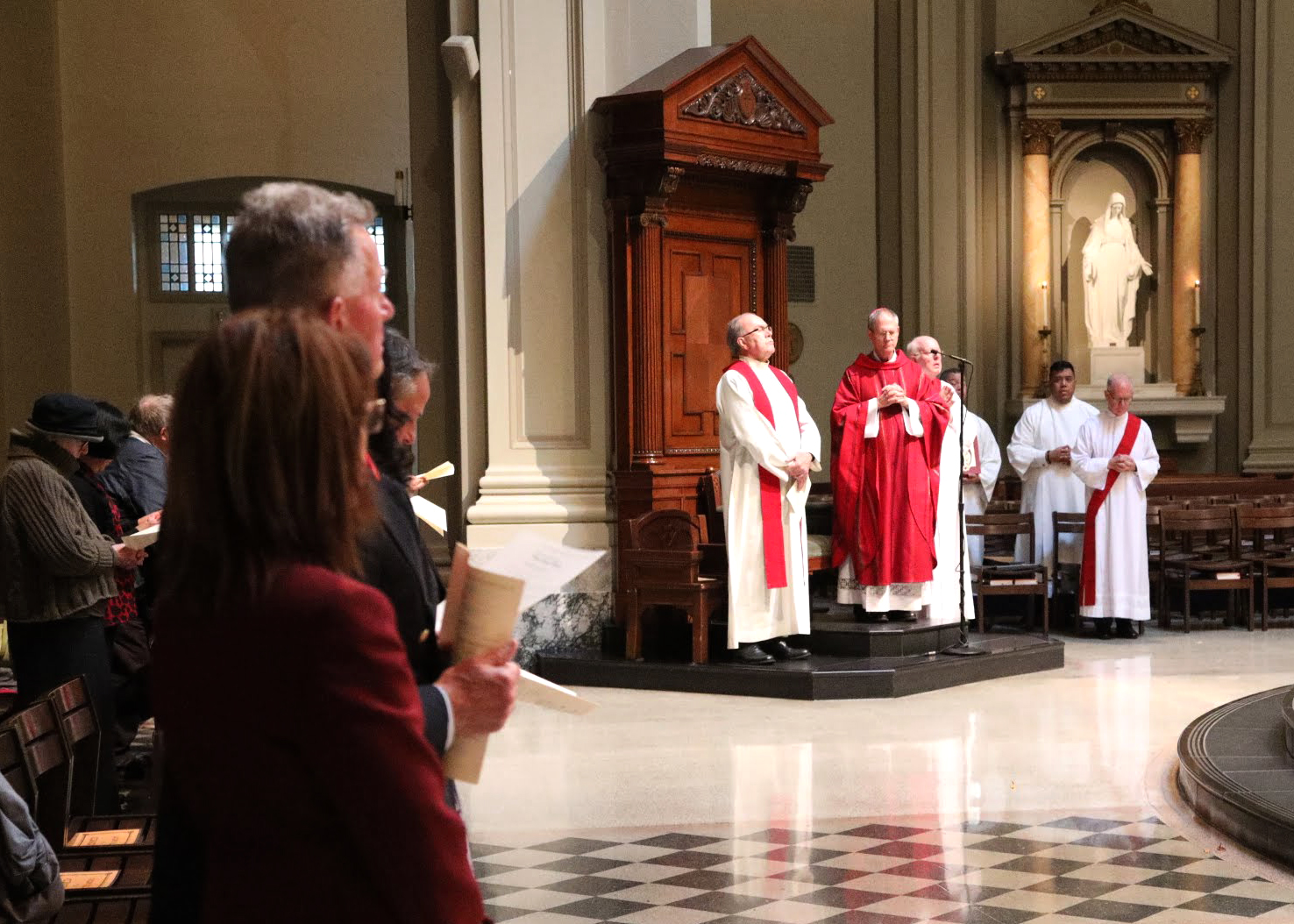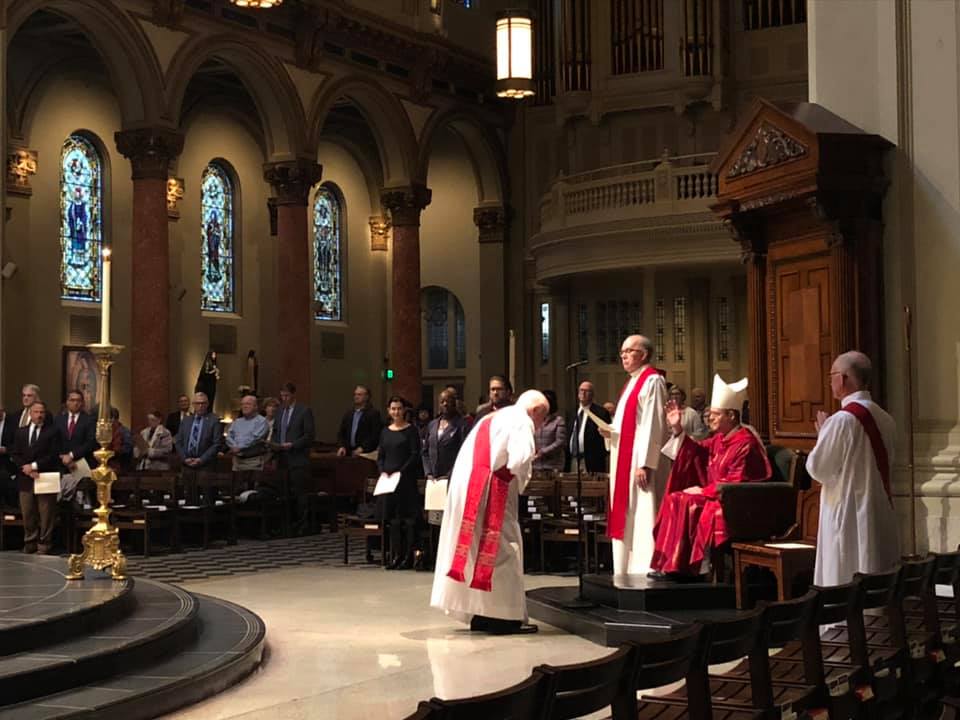 This evening, members of the legal profession gathered for Mass at St. James Cathedral. This tradition, an annual gathering known as the Red Mass is an opportunity to reflect upon the role of law in society, and the unique work entrusted to these men and women in their pursuit of justice. Below is my homily from this evening’s celebration. I’m grateful to the many justices, judges and lawyers who took time to participate in our gathering.
This evening, members of the legal profession gathered for Mass at St. James Cathedral. This tradition, an annual gathering known as the Red Mass is an opportunity to reflect upon the role of law in society, and the unique work entrusted to these men and women in their pursuit of justice. Below is my homily from this evening’s celebration. I’m grateful to the many justices, judges and lawyers who took time to participate in our gathering.
October 17, 2019
Red Mass, St. James Cathedral
Homily: Most Rev. Paul D. Etienne, Archbishop of Seattle
As we gather for this year’s Red Mass, I wish to take this opportunity to thank you for joining us. Recognizing that every person is created in the image and likeness of God, we also acknowledge that we are called by this same God into a relationship with him. For us as Catholic Christians, this is accomplished most personally through our relationship with the Son of God, Jesus Christ.
In our relationship with Jesus, we discover the truth of who we are in the eyes of God. We discover that we are loved, unconditionally, faithfully, mercifully, eternally. In this light we begin to recognize the unique gifts bestowed upon us by God while at the same time we discover God’s will and how our life is to be lived in response to such a generous and benevolent love, by generously sharing with others what we have freely received from God.
This evening, I propose to use this lens as our starting point in giving thanks to God for each of you and your professional lives in the legal profession.
In today’s second reading from the Letter of St. Paul to the Ephesians, Paul encourages us to “live in a manner worthy of the call you have received, with all humility and gentleness, with patience, bearing with one another through love.” (Ephesians 4: 1-6) This is our true starting point – our call to believe in Jesus Christ – to become true disciples of the Lord in all we do. Our deepest calling is to holiness, which simply translated means to become more like Christ, allowing Christ to live more fully in and through us.
This is what Jesus speaks of in the Gospel we just heard – “Whoever loves me will keep my word, and my Father will love him, and we will come to him and make our dwelling with him.” (John 14:23)
I just love the way Jesus tees up this teaching: “Whoever loves me …” Who here loves Jesus???
How well are we keeping his word?
Are we aware of the presence of the Lord dwelling within us?
My friends, I know we live in a country that takes separation of Church and state seriously, and rightly so. But I want to remind us that it equally protects religious freedom. Thus, we have the room even in this country to live our faith freely and fully in every aspect of our lives. As a bishop, I will challenge all of our people, regardless of their state in life, to integrate the faith into every aspect of our lives. I believe our world today would be far better off if more people heeded the words of St. Paul seriously, to live our lives in a manner worthy of the calling we have received – worthy of the life we received in Baptism, the life of the Risen Lord, Jesus Christ.
I found myself last night mulling over a number of questions about Jesus and the Law – the Ten Commandments. Let’s take the Ten Commandments as a starting point: When did these come into existence? And why? We believe the Ten Commandments (the Law) were given by God to Moses (to the People of Israel) as the law for living in a proper covenant (relationship) with God and with one another.
So, this instructs us on two counts. First, the law is meant to serve the common good of all people, so that we might live in right relationship with one another. Also, the Law is positive; it is instructive for how to live a moral life. In other words, it seems the emphasis is in keeping the Law, rather than not transgressing it. Striving to keep the law leads to a virtuous, a moral life, as it is instructive for responding to God, the Giver of the Law’. Keeping the Law not only honors God, but also advances one’s full stature in maturity as a human being. Specifically, human maturity entails living life for others, not for one’s self.
Now, let us look at the person of Jesus in relation to the Law. This helps put into perspective the true dignity of the particular calling each of you have received in service of the law.
Jesus said he came to fulfill the Law and the Prophets – not to abolish them. Remember, the Law is about living in right relationship with God and neighbor. The Law is ultimately what aids us in gaining the Kingdom of Heaven – and, please God, in building the Kingdom of God here on earth.
If you recall, at one-point Jesus rails against the Pharisees and the Scholars of the Law. Why? Because, in Jesus’ own words from the Gospel of Luke: “You have taken away the key of knowledge. You yourselves did not enter and you stopped those trying to enter.” Matthew’s Gospel says this slightly differently: “You lock the kingdom of heaven.” It is critical to remember the Law – the Ten Commandments – which by the time of Jesus has been expanded into hundreds if not thousands of detailed precepts – and the focus is more on a legalism, or scrupulous following of miniscule details, rather than the desired outcome of living in right relationship with God and neighbor. In short, the truest nature of the Law – as summarized by Jesus, has been forgotten – to love God with all your heart, and your neighbor as yourself. This is the ‘key of knowledge’ which Jesus speaks of.
Jesus, as the Son of God, who is the Supreme Law-Giver, comes to give a new covenant to God’s people. He comes not to just renew an old covenant, but to give a new Law – a new Covenant. Jesus life and ministry, and most especially through his death and resurrection, brings about this new covenant, and at the same time keeps his promise to ‘fulfill the Law.’ The Law of God is fulfilled in love. The Justice of God is most fully expressed in mercy.
So, where does that leave us at the end of this homily? I would suggest that the words of the Prophet Micah are very instructive:
“You have been told, O man, what is good, and what the Lord requires of you:
Only to act justly, to love tenderly, to walk humbly with your God.”
(Micah 6:8)
In New Testament language, I believe this translates into an invitation to exercise our work and our lives in relationship with Jesus; to allow the life of the Risen Christ, who through the love of God has been poured into our hearts by the power of the Holy Spirit, to live and reign fully and freely in and through us in all we think, say, and do.
7
